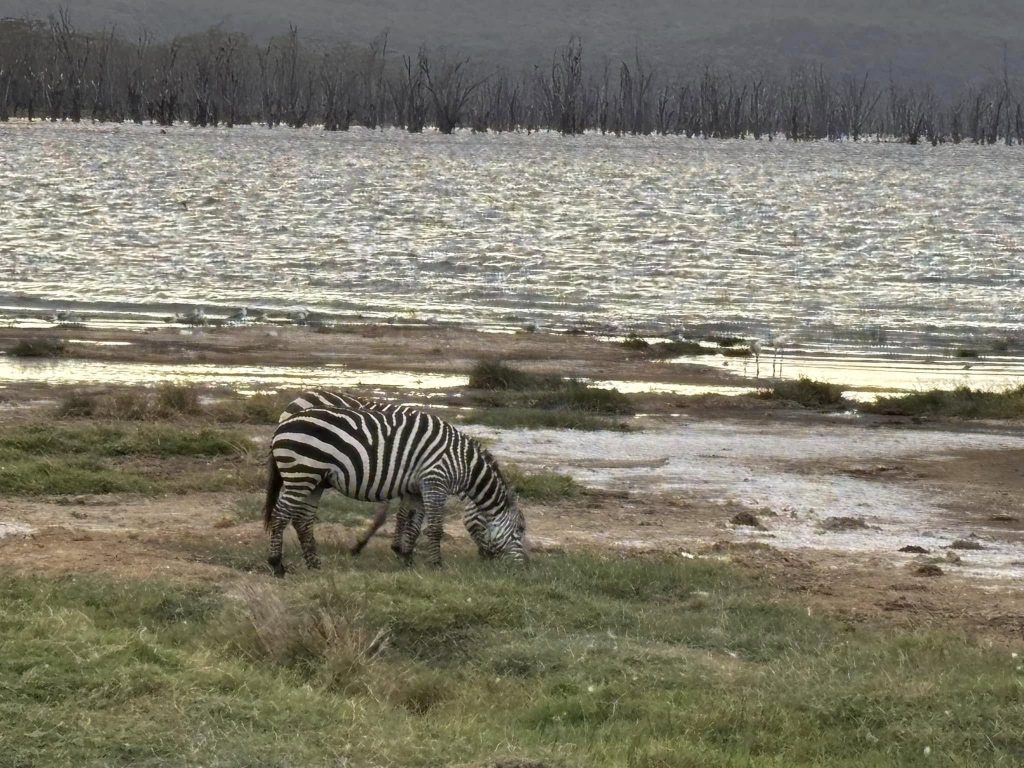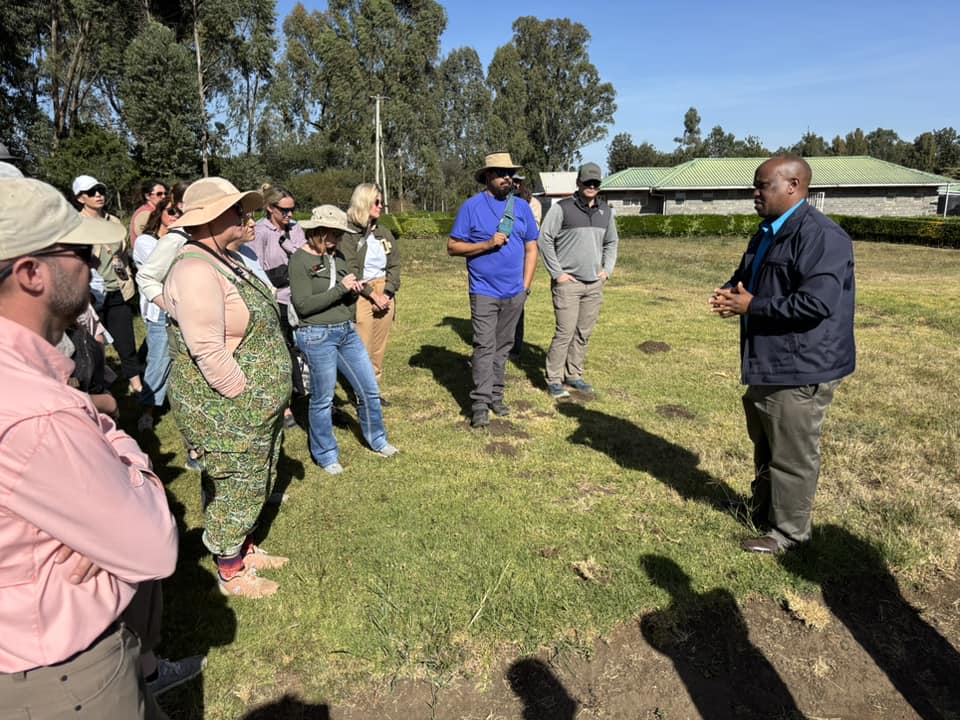
We continue to share comments from the Director of the Oklahoma Ag Leadership Program Edmond Bonjour as Class XXI travels across parts of Kenya for their International Capstone study experience.
“Monday morning saw the OALP visiting the Mountain Oil Canola Factory which produces oil under the brand name Pure Mountain. The factory is owned by Agventure, a food production company that uses sustainable farming practices. They use a hot press process for removing oil from canola, sunflowers, and flax. There are ten large farmer shareholders and about 500 small farmers. They are currently receiving about 50 tons of canola seed per day which will yield 20 tons of oil. When canola arrives, it is checked and must have a moisture content of less than 8% and fewer than 3% impurities. They have two 280 metric ton storage bins. A 15 metric ton dryer is available, mainly for small farmers who sometimes bring in moister grain.
“The canola goes through pre-conditioning at 60-70 degrees Centigrade, then a flaker to increase surface area, then through an organic hot roller press at 80 degrees Centigrade for extraction. The residual cake goes through a second extraction to remove more oil. The resulting oil goes through filtration where it is spun to remove any sludge and finally to a 600 metric storage tank. The residual dry cake is cooled, then ground, and finally packed into 50 kg bags. It is used for animal feed. The oil is mainly used to make margarine. The entire process is mechanical – there are no solvents used. It takes two days to clean the system to switch to a different grain for oil processing.
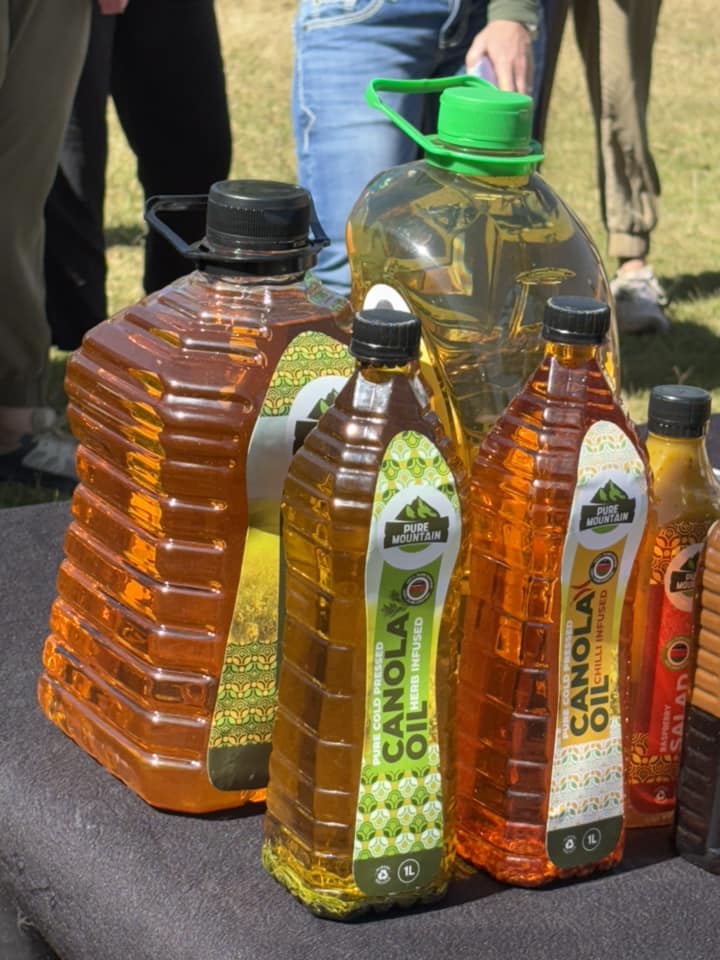
“Their farmers use crop rotation, minimum tillage, and retention of residue in the fields. They focus on soil health including soil biology, building up of micronutrients, and reduction of traffic in the fields. Their planter is an all-in-one implement – chisel, harrow, fertilizer, planter, and packer. They seed canola at a rate of 1 kg per hectare at a maximum depth of 1/2 inch. Fungicide is spayed on the crop once. They also have a cold press for canola at another facility where they make cooking oil, infused oils, and salad dressing.”
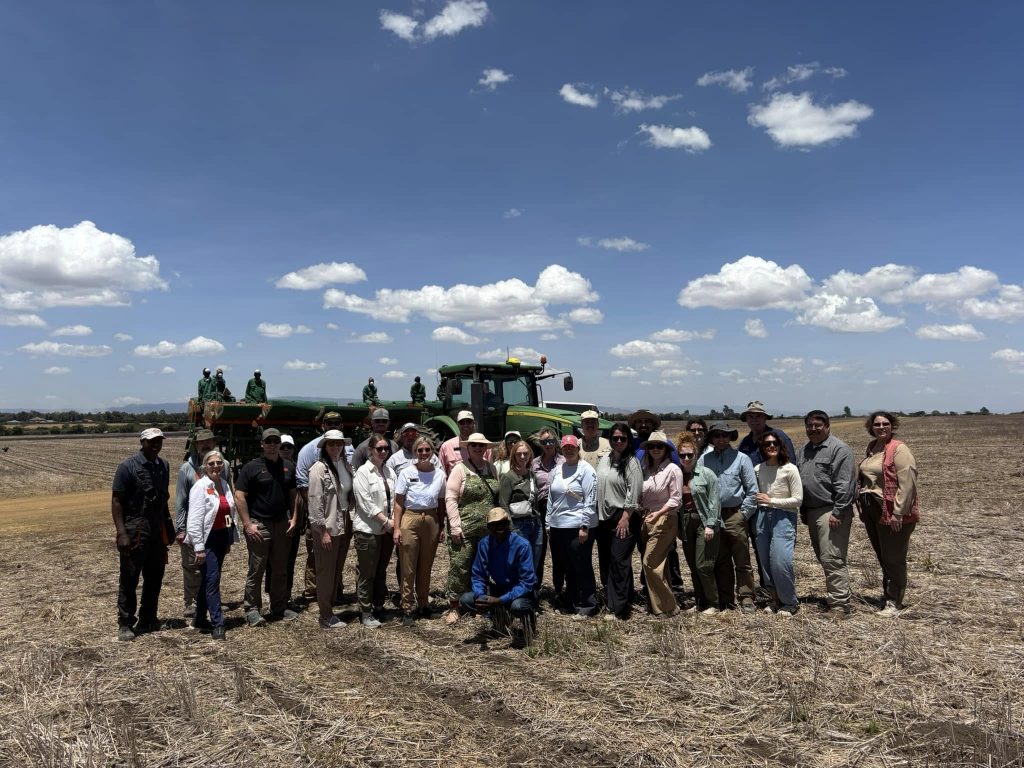
“The OALP then toured Madrugada Farm, also part of Agventure, which is at an elevation of 1.900 meters. They showed us so old and current machinery before going to the field. The farm boasts extremely fertile, porous soil from using a rotational system. They have 3,000 acres and grow wheat, barley, corn, sorghum, canola, peas, lupine, and sunflowers, all using the zero till method. They have been using this tilling method since 2010.
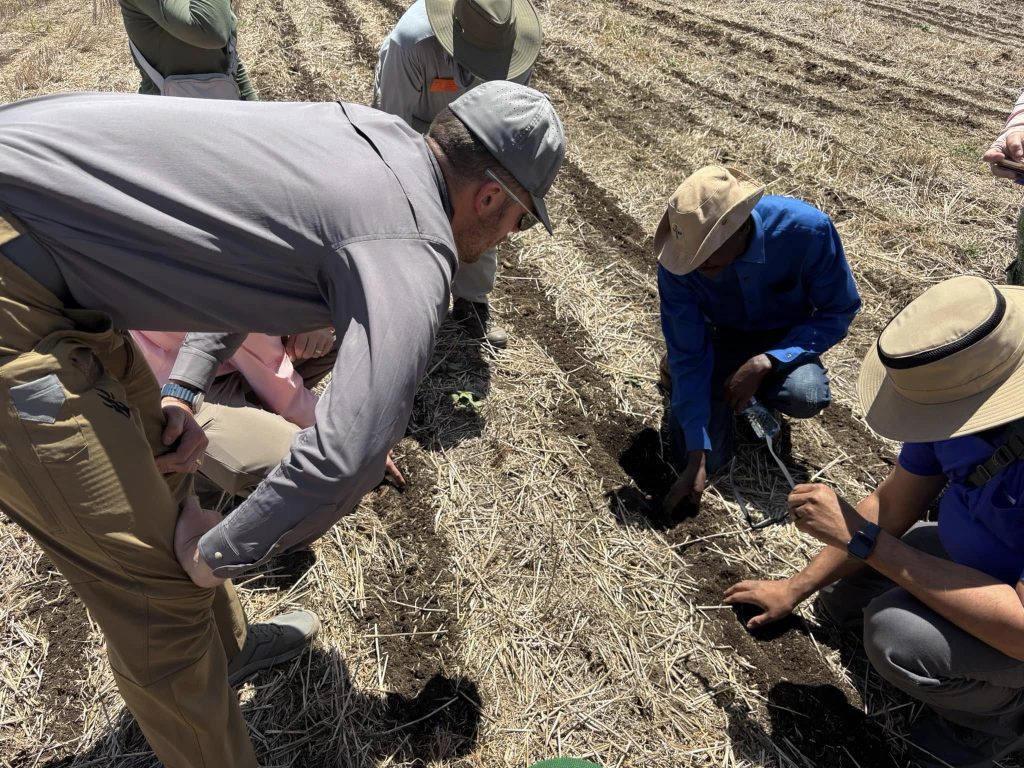
Before this, they were a fully cultivated farm, growing wheat and running beef and dairy cattle since 1927. They have 320 hectares of corn and it is de-tasseled using 800 female workers. Drones are used to spray the crops. The wheat and corn is used for seed. Wheat yield is 6.5-7.0 tons per acre (approximately 100 bushels per acre) and corn yield is 7 tons per acre.
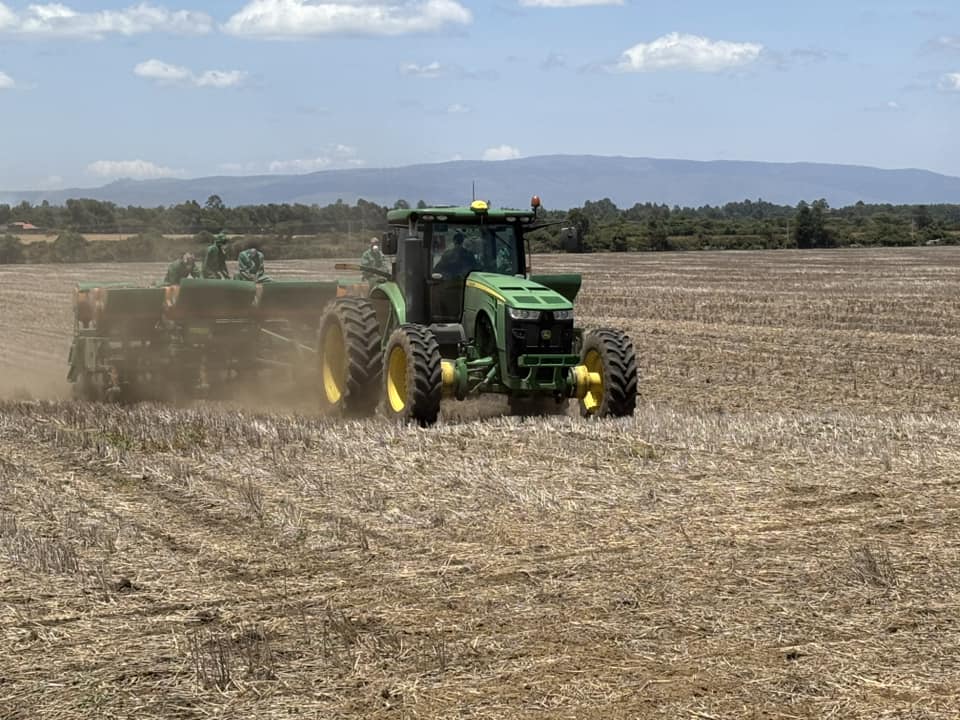
Midday- “The OALP visited Kenana Farm near Njoro where we met Bruce Nightingale. The Nightingale family have farmed in Kenya for many years. We enjoyed a delicious lunch outdoors hosted by Andrew (Bruce’s son) and Zoe Nightingale on the lawn in their stunning garden with lovely views across the Great Rift Valley.
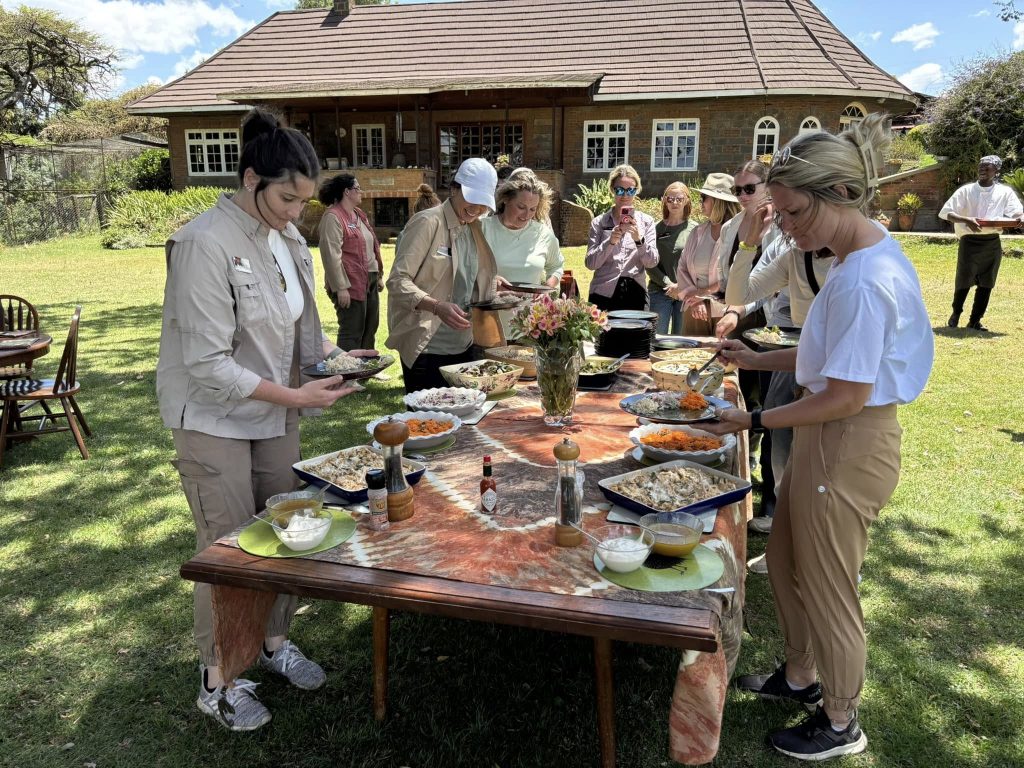
“After lunch, we walked across the farm to Kenana Knitters which was founded by Paddy (Bruce’s wife) in 1998. Kenana Knitters was established to help rural women find some much needed income using their spinning and knitting skills. Kenana Knitters was founded on the premise of “changing lives stitch by stitch” by directly providing them with a source of income, thus enabling them to improve the quality of their own lives as well as those of their extended families.
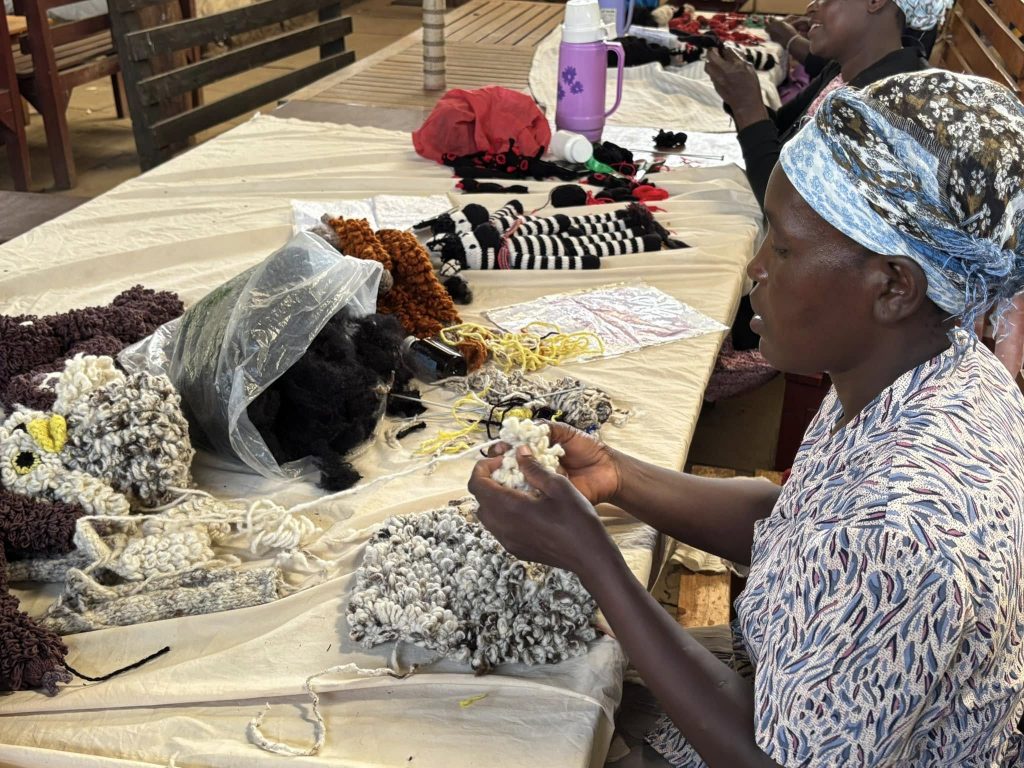
“The knit items are made at home from Tuesday through Friday and then come to this site to have their items inspected. Currently, Kenana supports 150 regular women workers, but has 622 spinners and weavers. This organization also provides the women with adult literacy, free meals for high risk, pregnant, and elderly women, financial literacy, and free healthcare and well-being.
The OALP had a quick impromptu visit with Janet and Jess Peek whose home church is in Jenks, Oklahoma! They operate Crown of Beauty Ministries in Kenya. Its goal is to empower and support abandoned and widowed women who are seeking to rebuild their lives. There is a women’s sewing program in which women ultimately start their own business. Forty women have graduated from this program. They also support 70 children in primary schools and churches. We then drove back through Lake Nakuru National Park to our lodging.
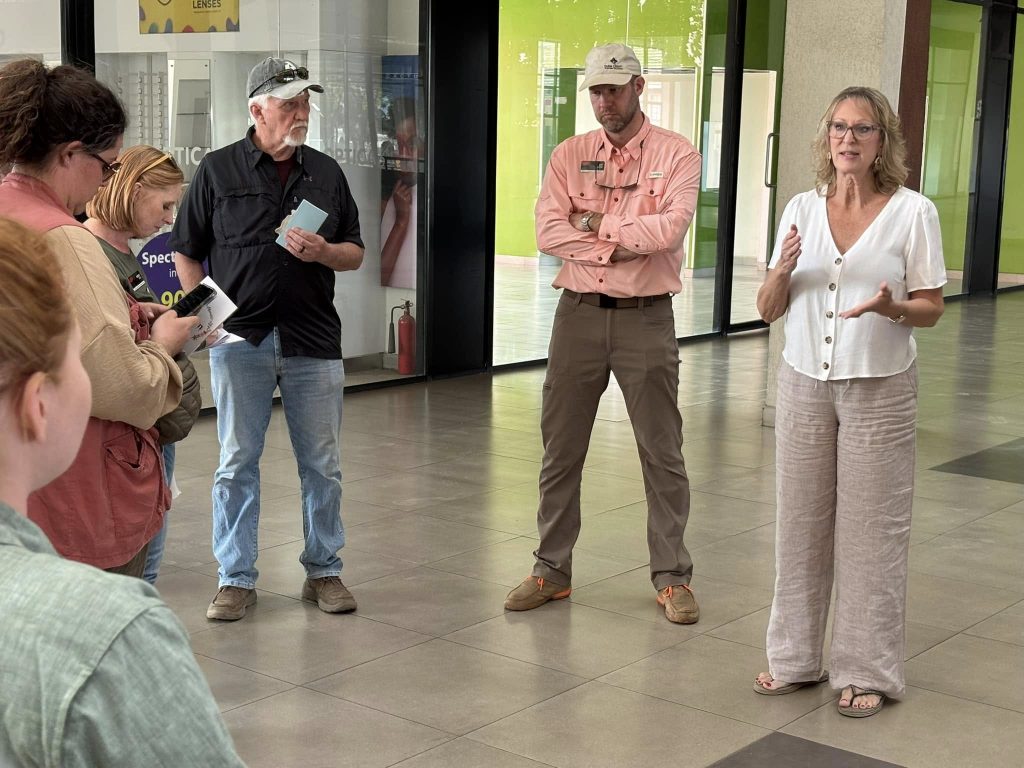
As Class XXI continues to travel across Kenya- the application for Class XXII is now available on line at the OALP website. Click here for that application– which is due by May first, 2025. In person interviews will happen in June and the XXII will meet for the first time in August of this year.
